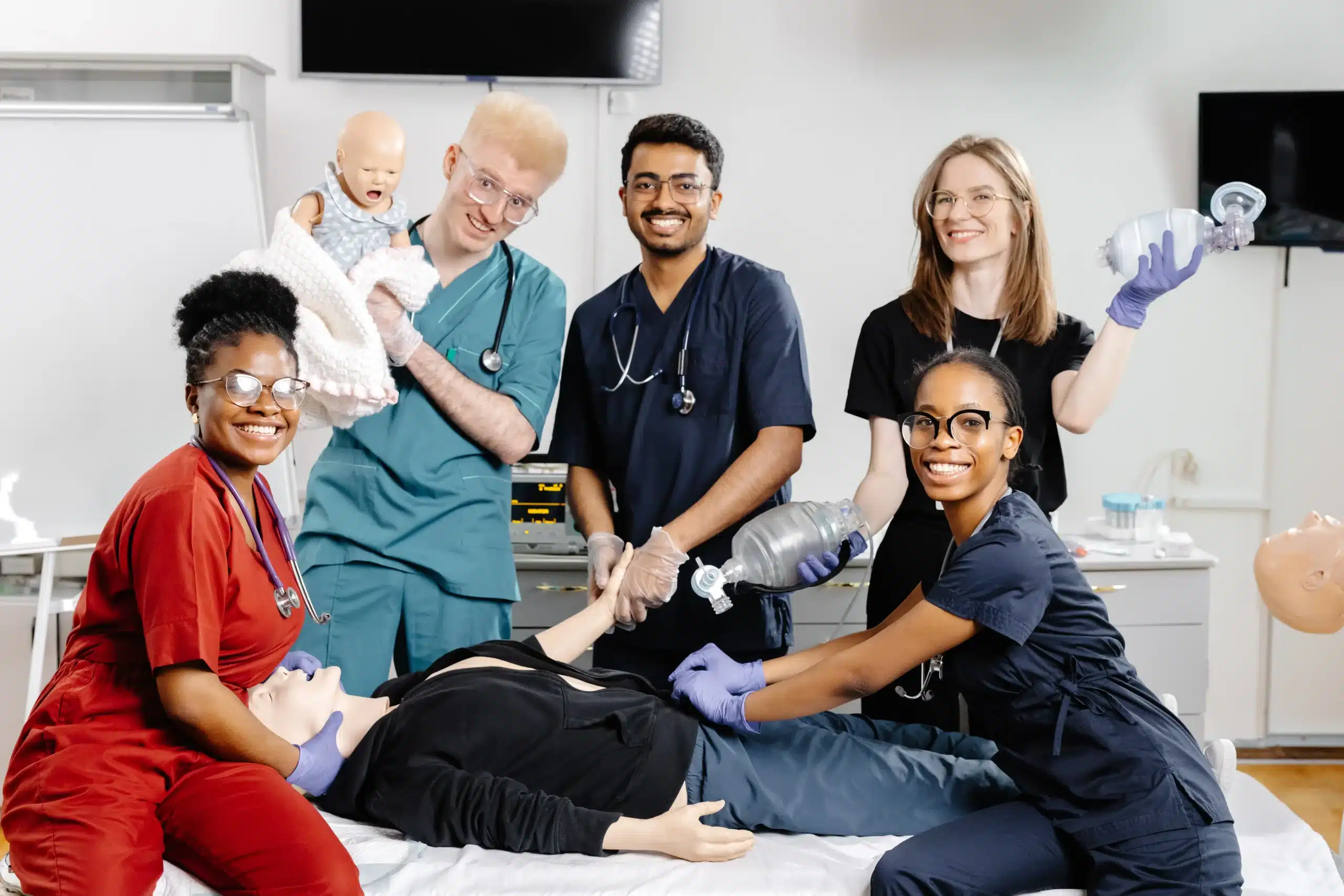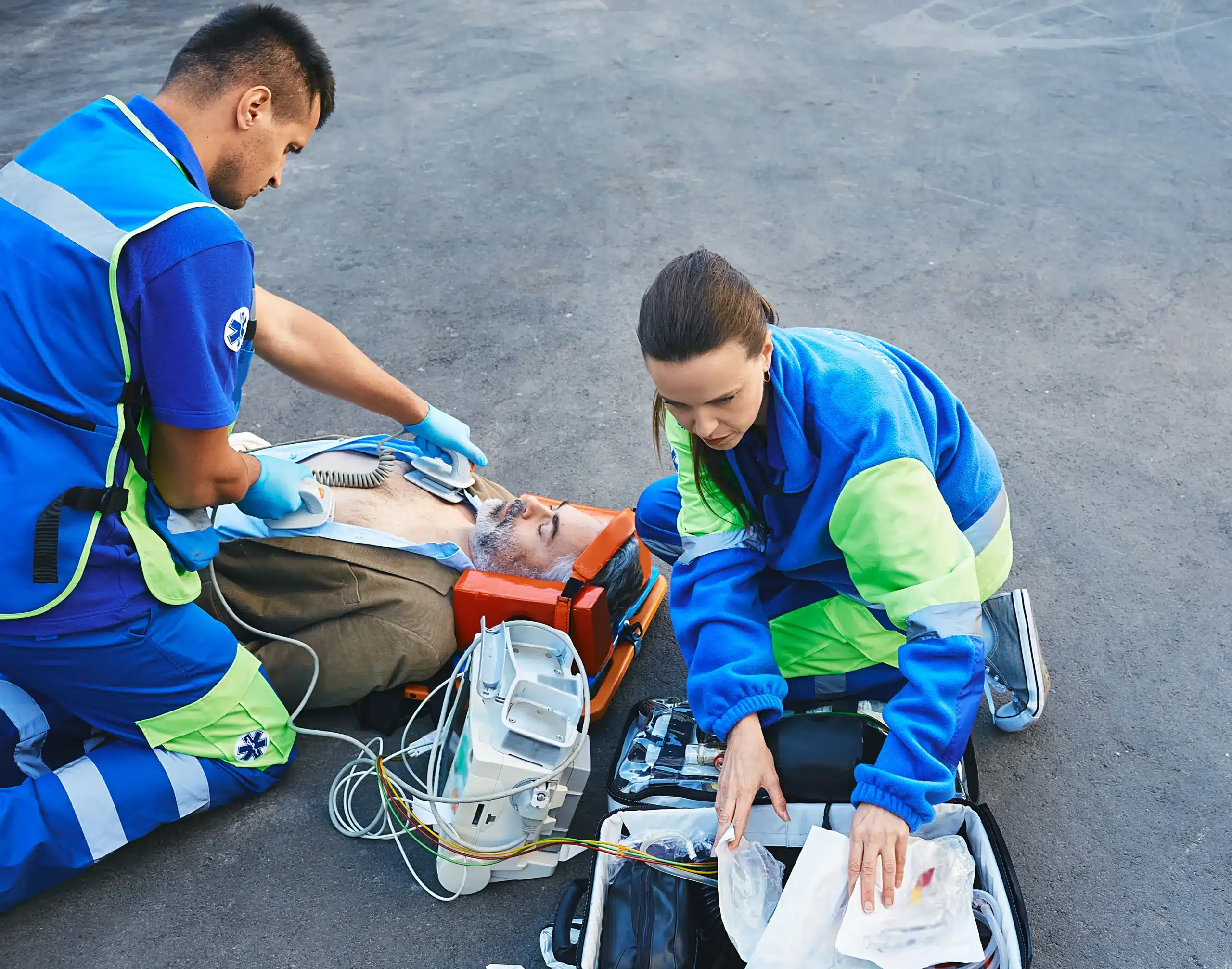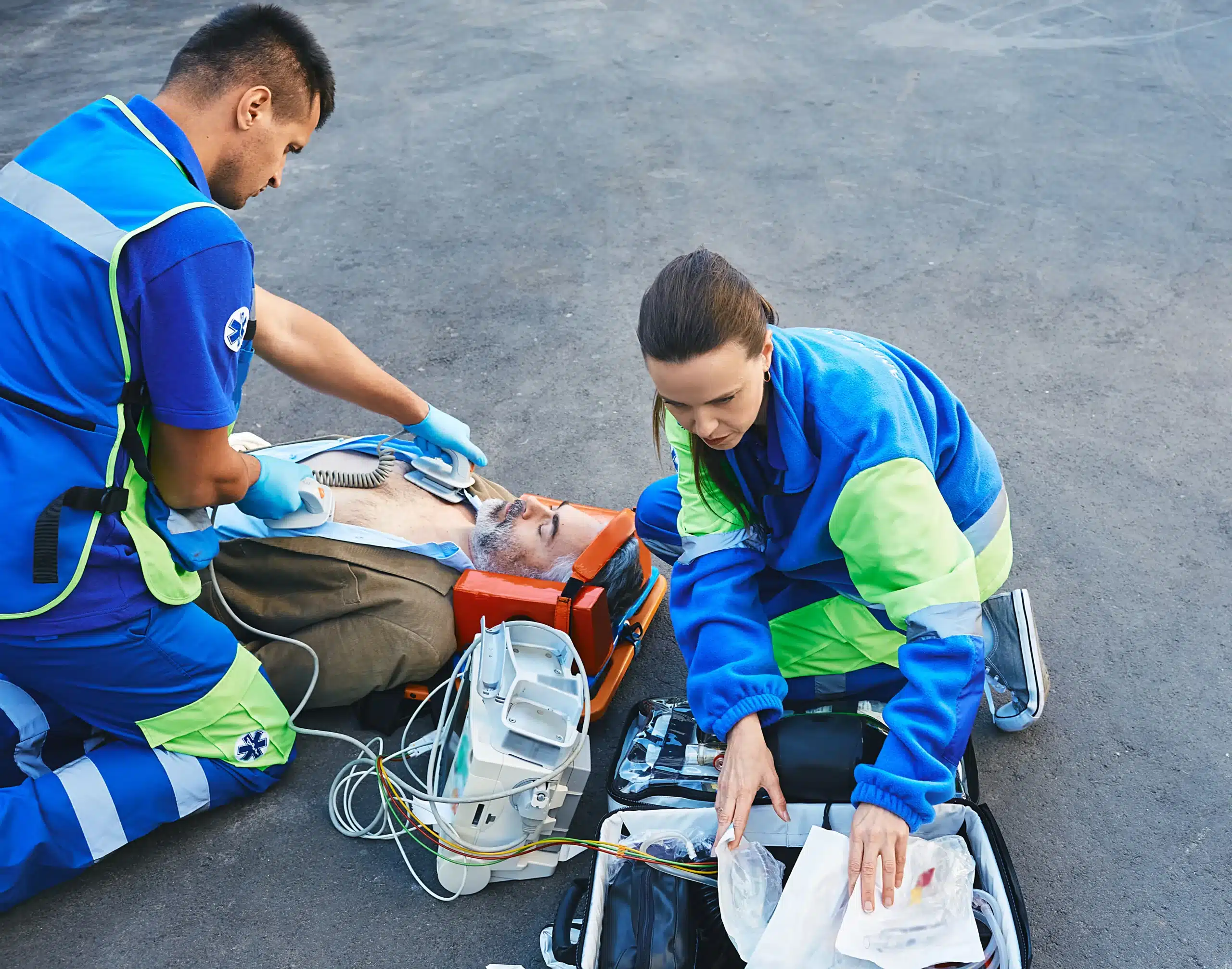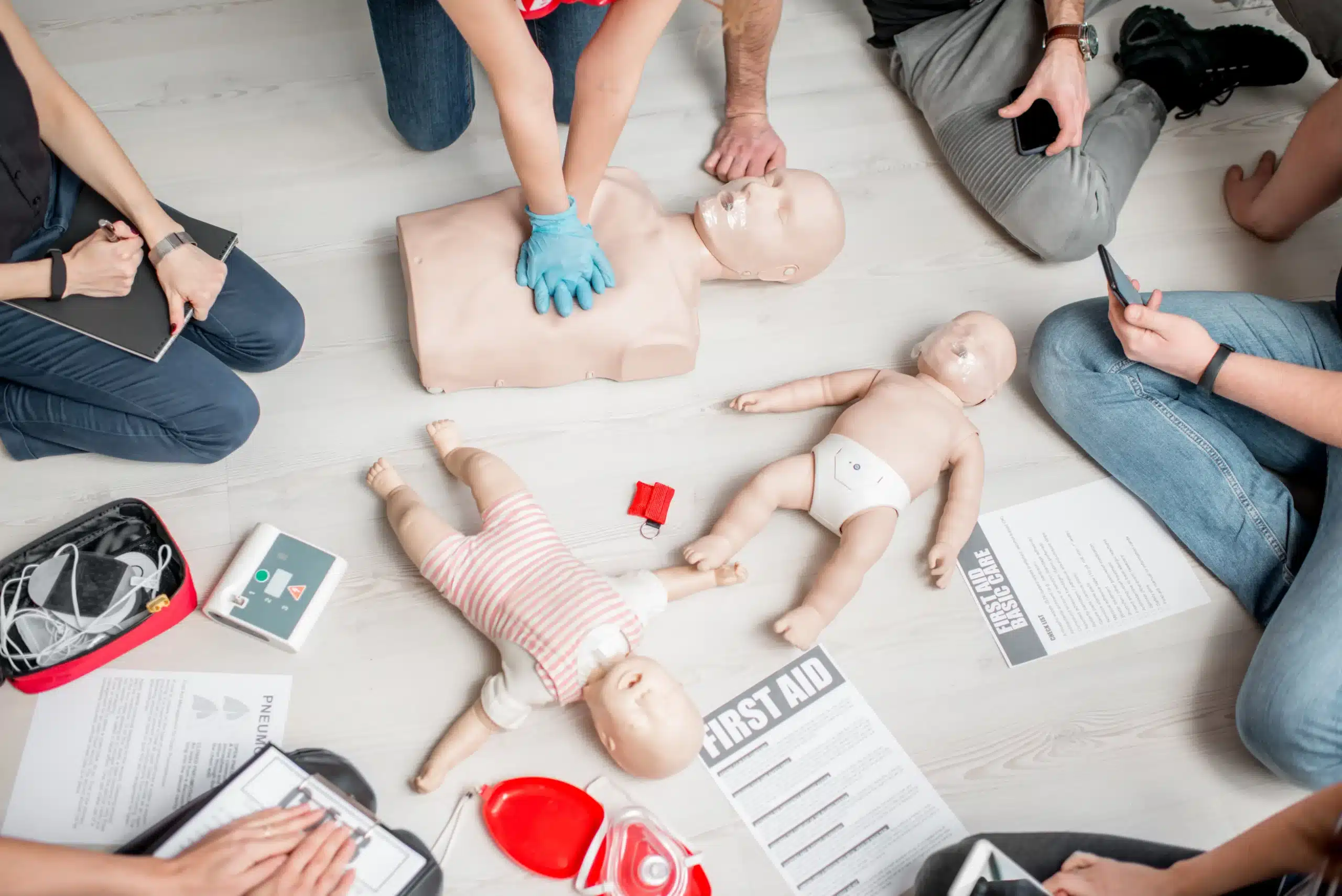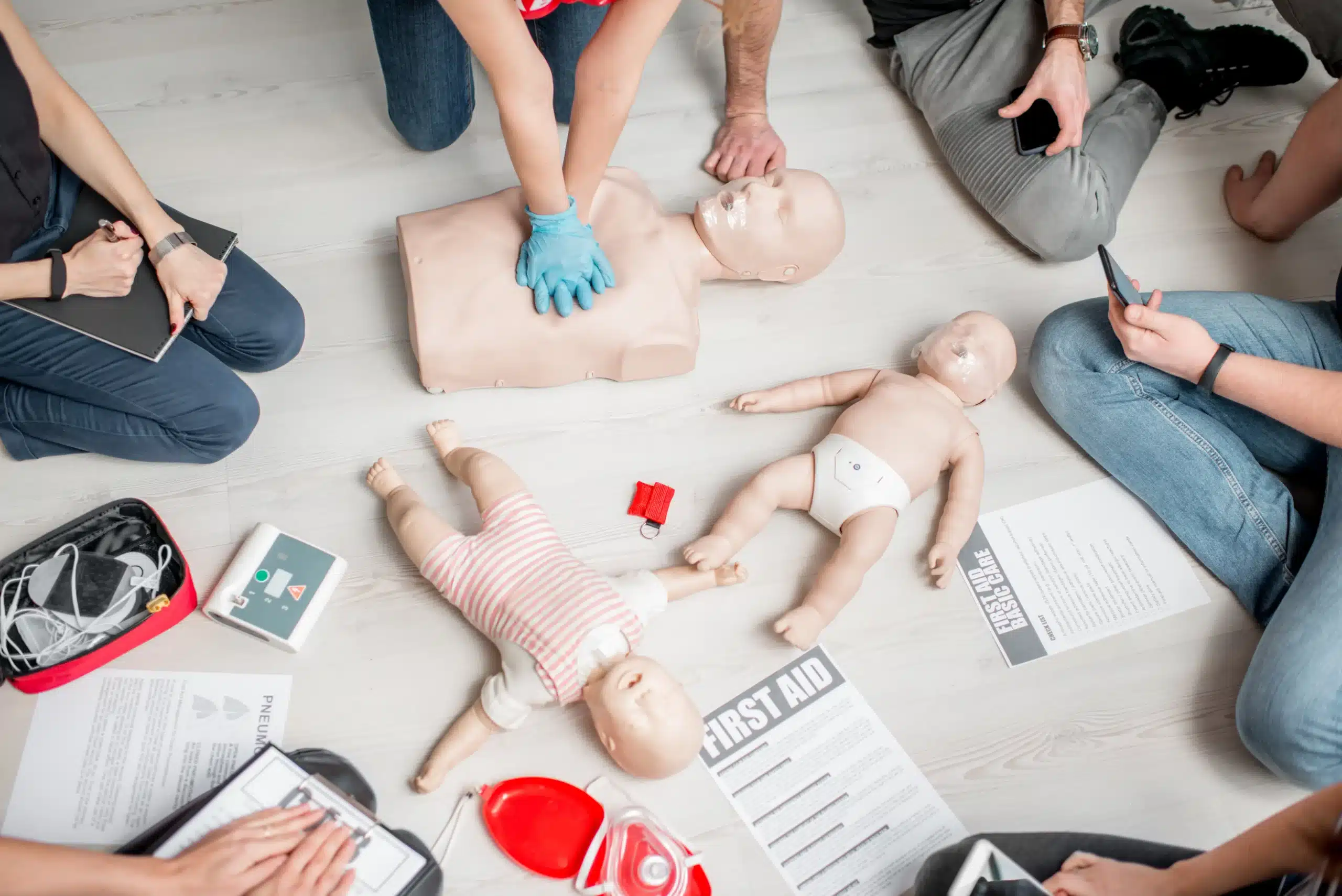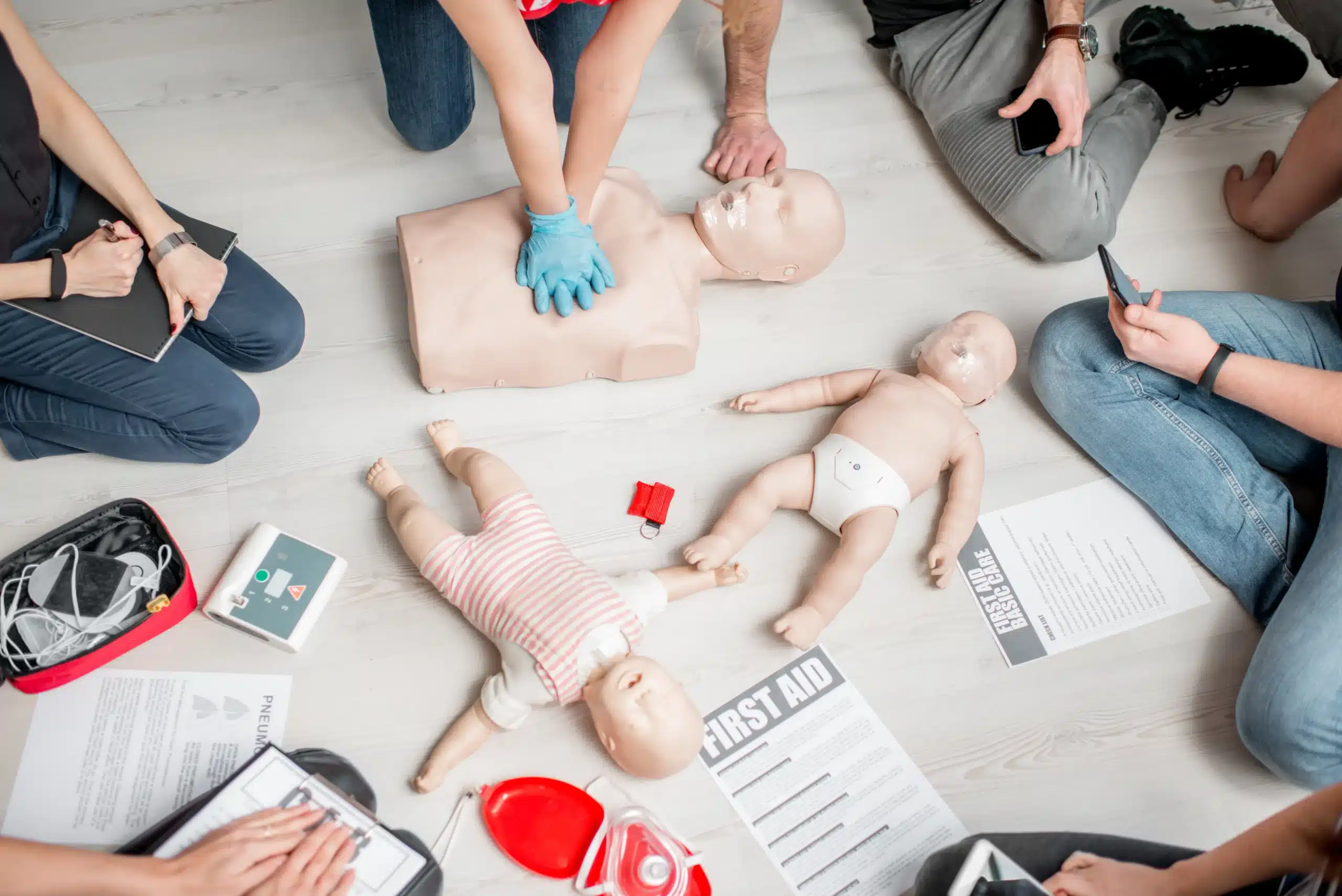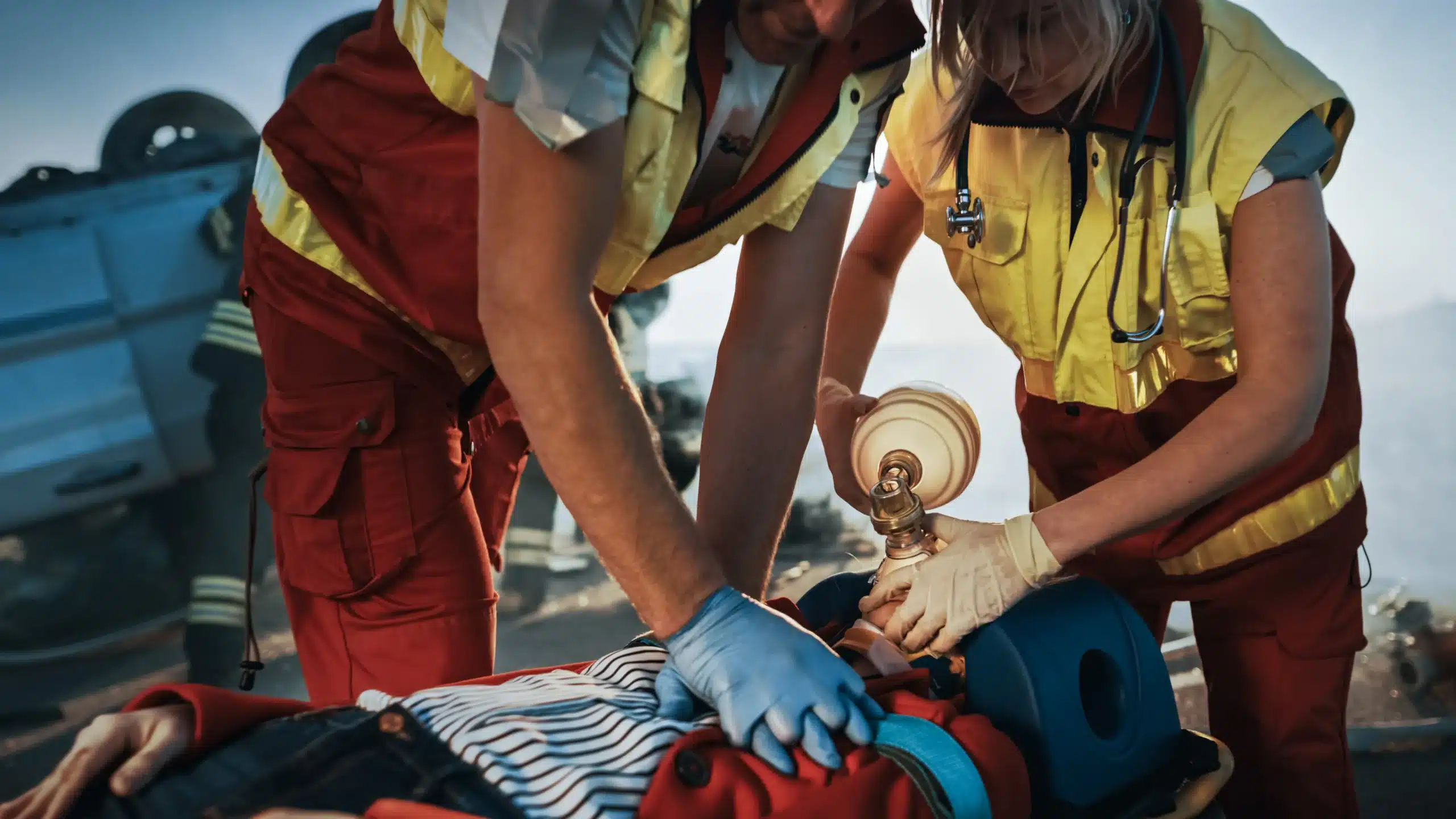Working in healthcare, you know how quickly situations can escalate. Every second counts during a cardiovascular emergency. Having the right training can make all the difference. That’s where Advanced Cardiovascular Life Support (ACLS) comes in. This article explores the ins and outs of ACLS courses in Walnut Creek, guiding you through everything from course content and available formats to managing stress and finding the right training provider for your needs. Whether you’re a seasoned healthcare professional or just starting your journey, this guide will help you find the perfect ACLS course in Walnut Creek to enhance your skills and confidence in critical care situations.
Key Takeaways
- ACLS is crucial for healthcare providers: It builds upon BLS skills, teaching advanced techniques for managing complex cardiac emergencies and emphasizing teamwork during critical situations. Choose a course format—traditional, blended, or refresher—that fits your needs and schedule.
- Select your ACLS course thoughtfully: Consider factors like instructor qualifications, course content, and the overall learning environment. Experienced instructors who are also healthcare professionals can provide invaluable real-world insights. Inquire about potential discounts and resources for managing stress during the training.
- Preparation is key for ACLS course success: Review your BLS fundamentals, get familiar with ACLS algorithms, and plan for breaks and meals during the course. Understanding the course structure and managing any pre-course jitters will help you focus and learn more effectively.
What are ACLS Courses?
ACLS stands for Advanced Cardiovascular Life Support. These courses are designed for healthcare providers—doctors, nurses, paramedics, and other professionals—who respond to cardiovascular emergencies. Building on the fundamentals of Basic Life Support (BLS), ACLS courses cover more complex, critical situations. Think of it as the next level of training, preparing you with the knowledge and skills to handle serious cardiac events.
ACLS certification focuses on high-quality CPR, recognizing and managing cardiac arrest, and the importance of teamwork during resuscitation. It goes beyond the basics, covering essential skills like ECG interpretation, using advanced airway management tools, and administering IV medications. These advanced techniques are crucial for stabilizing patients and improving their chances of survival. If you’re a healthcare professional, ACLS training isn’t just beneficial—it’s often a job requirement, ensuring you can provide the best possible care during critical moments.
Find ACLS Courses in Walnut Creek
Finding the right ACLS course can feel overwhelming, but several excellent options are available in Walnut Creek. Here’s a closer look at some reputable providers:
Safety Training Seminars
Safety Training Seminars offers various American Heart Association (AHA) courses, including ACLS, BLS, and PALS. They’re known for their competitive pricing and daily classes, making it easier to fit a course into your busy schedule. This commitment to accessibility helps more people gain these essential, life-saving skills. They also offer a low price guarantee. In addition to standard CPR and first aid courses, they also offer specialized training such as the EMSA Child Care Health & Safety program and RQI classes.
CPR Training Center
The CPR Training Center in Walnut Creek has a long history of providing AHA-certified courses. They offer a comprehensive range of training options, including ACLS, BLS, PALS, and NRP. Their instructors prioritize hands-on learning, giving students the practical experience and confidence to handle real-world emergencies. You can explore their website for more information about their CPR Training in Walnut Creek.
Bay Area CPR
Bay Area CPR partners with Safety Training Seminars to offer AHA-certified ACLS courses in Walnut Creek. These courses are designed specifically for healthcare professionals, equipping them with the skills to manage cardiac emergencies. Beyond ACLS, they also offer BLS, PALS, and First Aid training to meet diverse needs.
American Heart Association Training Centers
The American Heart Association (AHA) sets the standard for high-quality CPR and advanced life support training. Their ACLS courses build upon fundamental BLS skills and are crucial for healthcare providers responding to cardiac arrest. AHA Training Centers in Walnut Creek offer a structured learning environment emphasizing practical skills and knowledge.
What Happens in an ACLS Course?
This section covers what you can expect during an ACLS course, from the structure and content to the hands-on practice you’ll receive.
Course Structure and Duration
ACLS courses blend theory and practical skills, giving you a well-rounded understanding of advanced cardiovascular life support. A full ACLS course typically takes about 15.25 hours including breaks, or between 10.25 and 11.25 hours without breaks. This timeframe allows for in-depth instruction and ample practice time.
Key Topics and Skills
Building upon the fundamentals of Basic Life Support (BLS), ACLS training emphasizes high-quality CPR and introduces advanced techniques. You’ll learn to interpret ECGs and manage airways, including intubation. The curriculum also covers administering IV medications. Understanding the key differences between ACLS and BLS is crucial for healthcare professionals.
Practice and Simulations
ACLS courses use realistic scenarios and simulations to reinforce your learning. Expect hands-on practice sessions, often involving simulated patient cases and videos. This immersive approach helps you develop the confidence and skills to manage real-life emergencies. Some courses incorporate advanced simulation technology for an even more realistic and effective training experience. Consider exploring the various ACLS class formats to find the best fit for your learning style.
Compare ACLS Course Formats
Choosing the right ACLS course format depends on your learning style and schedule. Let’s break down the most common options: traditional classroom learning, blended learning, and refresher courses for recertification.
Traditional Classroom Training
Traditional classroom ACLS training offers a structured learning environment with face-to-face interaction. This format allows for direct engagement with your instructor and classmates, creating opportunities for questions, discussions, and real-time feedback. Hands-on practice and simulations are a key part of in-person training, giving you the chance to apply your knowledge in a controlled setting. These in-person ACLS courses typically run for about 15.25 hours with breaks, or 10.25 to 11.25 hours without breaks. This immersive experience can be especially beneficial for those who thrive in a group setting and prefer direct instruction.
Blended Learning
Blended learning combines the flexibility of online learning with the benefits of in-person skills sessions. This hybrid approach allows you to complete the cognitive portion of the ACLS course at your own pace, reviewing materials and completing online modules as your schedule allows. You’ll then attend an in-person session to practice essential skills, participate in simulations, and receive feedback from a certified instructor. This format is a great option for those who prefer a more flexible schedule or appreciate the ability to review material independently. Blended learning and classroom training both cover the same American Heart Association science-based skills and result in the same AHA ACLS Course Completion Card.
Renew Your Certification
Staying current with the latest advancements in cardiovascular life support is crucial for healthcare providers. ACLS refresher courses are designed to update your knowledge and skills, ensuring you’re prepared to respond effectively in real-world emergencies. These courses cover updated guidelines and best practices, reinforcing your existing knowledge and introducing any new advancements. Engaging in refresher courses demonstrates your commitment to continuous improvement and helps you maintain your certification. Check with your certifying body for specific renewal requirements and timelines.
ACLS Course Costs in Walnut Creek
Finding an ACLS course that fits your budget is important. Let’s break down the typical costs associated with ACLS certification in Walnut Creek and explore ways to save.
Average Pricing
ACLS course costs in Walnut Creek depend on the training center and course format. You’ll find a range of prices from different providers. For example, the UCSF Kanbar Center offers a blended learning ACLS course that combines online coursework with an in-person skills session. The online portion is $168, and the in-person skills check costs $90, bringing the total to about $258. Safety Training Seminars also offers daily American Heart Association courses, including ACLS, at competitive prices.
Discounts and Promotions
Many providers offer discounts and promotions to make ACLS training more affordable. Concord CPR Classes emphasizes its low price guarantee and frequently offers discounts for group registrations. This can be a great option if you’re training a team. Walnut Creek CPR Classes also focuses on affordability, claiming to have the lowest prices in Contra Costa County. Additionally, Safety Training Seminars offers group discounts for ACLS courses. Remember to ask potential providers about any discounts to help lower the cost of your training.
Instructor Qualifications
When choosing an ACLS course in Walnut Creek, look for instructors with solid healthcare backgrounds and a passion for teaching. Experienced healthcare professionals bring real-world knowledge to the classroom, going beyond textbooks to share practical insights and answer your questions from a place of experience. They understand the pressures and realities of emergency situations, which enriches the learning process.
Many training centers, like the CPR Training Center in Walnut Creek, prioritize a low-stress learning environment led by working healthcare professionals. This practical experience translates into relevant scenarios and discussions, bridging the gap between theory and practice and creating a more supportive atmosphere where you can comfortably ask questions and learn from real-world examples.
Safety Training Seminars, a woman-owned American Heart Association Training Center, emphasizes its instructors’ experience as healthcare providers. This focus contributes to a supportive and informative learning environment, ensuring students receive high-quality, practical training aligned with the American Heart Association’s standards. Choosing a course with qualified instructors means you’re getting comprehensive training that prepares you for real-world emergencies. You can find more information about their ACLS courses on their website.
Choose the Right ACLS Course
Finding the right ACLS course means considering a few things to make sure it works with your learning style, schedule, and career goals. The best course for you depends on how you learn best and how much time you have.
Factors to Consider
Think about these elements when you’re choosing an ACLS course:
-
Course Format: ACLS courses are offered in a few different formats. In-person training gives you hands-on practice and direct feedback from instructors. These courses often use realistic simulations and patient videos to create an immersive learning experience. Online courses offer flexibility, so you can learn at your own pace and review material whenever you need to. Some online programs also include simulations using advanced technology. Blended learning combines online modules with in-person skills sessions, giving you a mix of flexibility and hands-on practice. Think about which format best fits your learning style and schedule.
-
Duration: ACLS courses vary in length, from about 10 hours without breaks to over 15 hours with breaks and lunch (according to the American Heart Association). Consider the total time commitment, including any work you need to do before or after the course, to make sure it fits into your schedule.
-
Learning Style: Are you someone who learns best by seeing, hearing, or doing? Do you prefer structured classes or independent study? Choosing a course that works with your learning style can make a big difference in how well you understand and remember the material. For example, if you like interactive learning, an in-person course with simulations might be a good choice. If you prefer to learn at your own speed, an online or blended learning format might be better for you.
Questions to Ask
Before you sign up for an ACLS course, ask these important questions:
-
Instructor Qualifications: The quality of the instruction really affects how much you learn. Ask about the instructors’ qualifications and experience. Look for instructors who are healthcare professionals with a lot of experience in emergency situations (like those recommended by Medtigo). Their real-world knowledge can make your learning experience much better.
-
Course Content: A good ACLS course should cover all the key topics and skills listed in the latest American Heart Association guidelines (as emphasized by Medtigo). This makes sure you’re getting the most current training. Ask about the specific things you’ll learn, like airway management, rhythm recognition, and how to use medications in emergencies.
-
Stress Management: ACLS training can be intense, so managing stress during the course is important. Ask about any resources or techniques they offer to help students handle stress and anxiety during the training. A supportive learning environment can significantly improve your overall experience. Articles like this one on Mind Over Matter offer helpful strategies for managing stress during these courses.
Get Certified and Stay Certified
Initial Certification
Getting your ACLS certification is a significant step in your healthcare career. ACLS equips medical professionals with the knowledge and skills to manage cardiopulmonary emergencies. It’s relevant for a wide range of providers, from emergency room physicians and anesthesiologists to critical care nurses and paramedics. The training typically involves lectures, interactive discussions, and hands-on practice. You’ll work through real-world scenarios, often using patient videos and simulations, to build proficiency in essential skills. An ACLS course covers topics like airway management, rhythm recognition, and pharmacology. While the total course time can vary, expect to dedicate around 10–12 hours, not including breaks, for the full initial certification. The American Heart Association provides a detailed breakdown of course options and their respective durations.
Renewal Requirements
Your ACLS certification isn’t a one-and-done deal. To maintain your skills and stay up-to-date with the latest guidelines, you’ll need to renew your certification every two years. An ACLS refresher course reinforces your existing knowledge and introduces any updated protocols. This commitment to ongoing learning ensures you’re always prepared to deliver high-quality emergency care. After completing the renewal course, you’ll receive a new provider card, valid for another two years. Regular recertification is crucial for all healthcare professionals involved in critical care, demonstrating your dedication to providing effective and current treatment during emergencies. Staying certified benefits your patients and contributes to your professional development.
Prepare for Your ACLS Course
Getting ready for your Advanced Cardiovascular Life Support (ACLS) course sets you up for a successful learning experience. Here’s how to prepare:
1. Understand the Course Format: ACLS courses come in different formats. You can choose from traditional classroom sessions, blended learning (online and in-person components), and skills-only sessions. Knowing the course structure helps you plan and manage your time. For example, full instructor-led ACLS courses typically run about 15 hours with breaks. Shorter, skills-only sessions focus on hands-on practice. Check with your chosen provider for specifics.
2. Review BLS Fundamentals: A solid understanding of Basic Life Support (BLS) is crucial for ACLS. The American Heart Association (AHA) emphasizes high-quality CPR as the foundation of advanced resuscitation. Brushing up on your BLS skills before the ACLS course will give you a head start.
3. Familiarize Yourself with Algorithms: ACLS algorithms provide a structured approach to managing cardiac emergencies. Take some time to review the algorithms for common scenarios like cardiac arrest, bradycardia, and tachycardia. This preview will help you understand the flow of treatment during the course. You can often find helpful resources and summaries on the AHA website.
4. Manage Test Anxiety: It’s normal to feel some anxiety before a high-stakes course like ACLS. Recognize that these feelings are common. Simple relaxation techniques, like deep breathing or mindfulness exercises, can help you stay calm and focused. If you have significant concerns, reach out to the instructors. They can offer support and create a comfortable learning environment.
5. Plan for Breaks and Meals: ACLS courses can be intensive. Check the course schedule in advance and plan for breaks and meals. Packing healthy snacks and staying hydrated can help you maintain your energy levels throughout the day. Knowing the logistics ahead of time, such as nearby restaurants or break areas, minimizes distractions and allows you to concentrate on learning.
Address Common Concerns
It’s normal to have questions before signing up for an ACLS course. Let’s address some common ones to help put your mind at ease.
Course Relevance
You might be wondering if an ACLS course is truly necessary for your career. The answer depends on your specific role, but ACLS certification is relevant for many healthcare providers working in emergency or critical care settings. Think emergency room physicians, anesthesiologists, critical care nurses, paramedics, and emergency medical technicians (EMTs). These skills allow paramedics and EMTs to begin interventions before arriving at the hospital, which can significantly impact patient outcomes. If you’re unsure whether ACLS certification is right for you, check with your employer or a professional organization. You can also review resources like this article on common misconceptions about ACLS for additional guidance.
Manage Stress
ACLS courses cover serious medical situations, and the training can be intense. It’s understandable to feel some stress, especially during simulations. Remember these feelings are normal. Many training centers, like Safety Training Seminars, create supportive learning environments. This article offers practical strategies for handling stress during cardiovascular life support education. Taking breaks, practicing mindfulness, and talking with your instructor can all help.
Communicate Effectively
Effective communication is crucial in medical emergencies. ACLS courses emphasize clear and concise communication within the healthcare team. You’ll learn techniques like closed-loop communication to ensure everyone is on the same page. This resource highlights the importance of communication during ACLS interventions and offers insights into avoiding common pitfalls. Practice and simulation scenarios in your ACLS course will give you opportunities to hone these skills.
Related Articles
- ACLS HeartCode Pleasant Hill: Your Certification Guide – Walnut Creek CPR Classes
- HeartCode ACLS Walnut Creek: A Certification Guide
- CPR Training in Pleasant Hill: Your Complete Guide – Walnut Creek CPR Classes
- BLS Certification in Pleasant Hill: Your Complete Guide – Walnut Creek CPR Classes
- BLS Certification in Pleasant Hill: A Complete Guide
Frequently Asked Questions
Is ACLS certification required for my job?
ACLS certification isn’t universally required, but it’s often essential for healthcare providers in emergency or critical care settings. Think roles like emergency room physicians, anesthesiologists, critical care nurses, paramedics, and emergency medical technicians. Check with your employer or a professional organization in your field to determine if ACLS certification is necessary or beneficial for your specific career path.
What’s the difference between BLS and ACLS?
BLS (Basic Life Support) focuses on fundamental life-saving techniques like CPR, using an AED, and relieving choking. ACLS (Advanced Cardiovascular Life Support) builds upon these basics, covering more complex situations like cardiac arrest, stroke, and acute coronary syndromes. ACLS involves advanced airway management, ECG interpretation, and administering medications. Think of BLS as the foundation, while ACLS provides the next level of expertise for healthcare professionals.
How long does ACLS certification last, and how do I renew it?
ACLS certification is typically valid for two years. To renew, you’ll need to take an ACLS refresher course. These courses cover updated guidelines and reinforce essential skills. Check with your certifying organization, often the American Heart Association, for specific renewal requirements and available courses.
What if I’m nervous about the course material or the exam?
It’s completely normal to feel some anxiety, especially if you’re new to advanced life support concepts. Most ACLS courses are designed with a supportive learning environment in mind. Reach out to the instructors or training center if you have specific concerns. They can offer guidance and resources to help you feel more comfortable. Remember, the goal is to build your confidence and skills, and a good instructor will support you throughout the process.
How can I find an ACLS course near me?
Several organizations offer ACLS courses, including the American Heart Association, the American Red Cross, and various hospitals and training centers. Online directories and resources can help you locate courses in your area. When choosing a course, consider factors like the instructor’s experience, the course format (in-person, blended, or online), and the overall cost. Reading reviews and comparing options can help you find the best fit for your needs.
